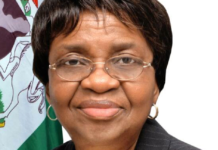Mr Abubakar Kende, the Secretary-General of the Nigerian Red Cross Society (NRCS), says
Nigeria is currently experiencing cholera outbreak, with more than 88,704 cases and 3,208 deaths recorded so far in the year.
Kenda said this on Tuesday at an ongoing three-day workshop on prevention of cholera in Abuja.
He added that “the NRCS, in consultation with the Nigerian Centre for Disease Control (NCDC), and support from International Federation of Red Cross and Red Crescent Societies (IFRC) is commencing emergency relief action in five states.
“The intervention will take place in Sokoto, Katsina, Kebbi, Gombe and Bayelsa states to slow down the rising cholera cases.”
According to him, recent NCDC Cholera Situation Report in 31 out of 36 states and the Federal Capital Territory (FCT) indicates
suspected cases in 2021.
He said that “the NCDC Emergency Response Centre indicates that cholera in Nigeria in 2021 surpassed the total case count for 2020 and 2019.”
Kenda explained that the society and stakeholders called on government and international partners to assist in intensifying the response to save lives and curb the spread of the epidemic.

He noted that in addition to the five states, the Independent Committee of the Red Cross was also supporting the control and prevention in three other states, namely Adamawa, Borno and Yobe.
According to him, many government agencies are being overwhelmed with COVID-19, which resulted to low attention to cholera.
He advised that relevant stakeholders should create awareness on access to clean water and proper sanitisation.
Mr Bhupinder Tomar, the Head of Delegation, Abuja Cluster, International Federation of Red Cross and Red Crescent Societies, noted that there was urgent need to address the issue of cholera.
Tomar said the federation would provide short term solution for immediate reduction in mortality rate.
He emphasised the need to educate communities on adherence to the practice of good hygiene, assuring that the federation would provide opportunities for stakeholders to immediately address the cholera issue.
“We need to educate communities to get prepared before the next six months against future occurrence,” he added.
Mr Nura Ydda, the Project Monitoring Evaluation and Reporting Officer, Kebbi State, said he would ensure that the messages were translated into Hausa language.
According to Ydda, Kebbi communities will learn and understand better when the messages are in their dialects.(NAN)










